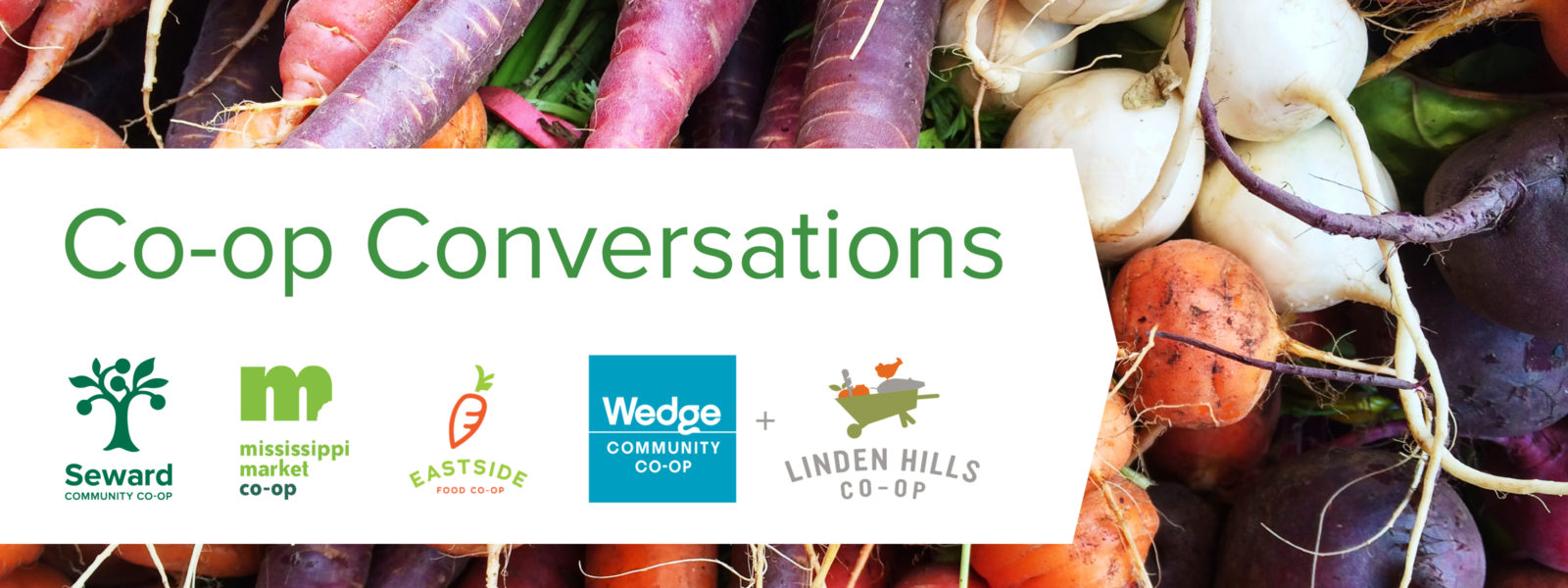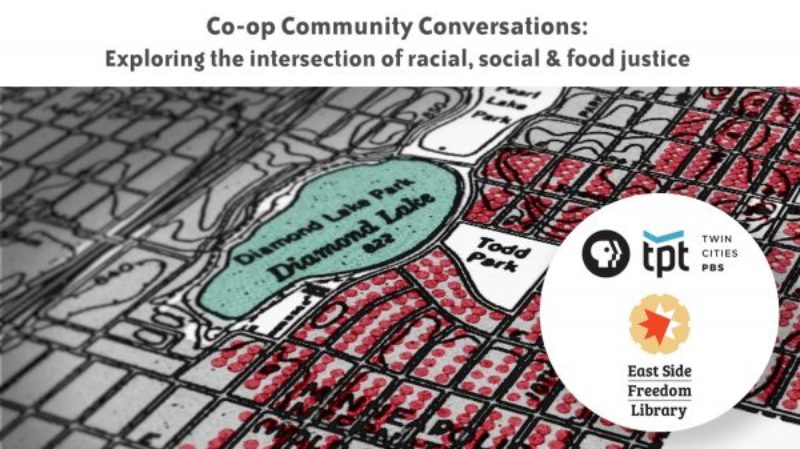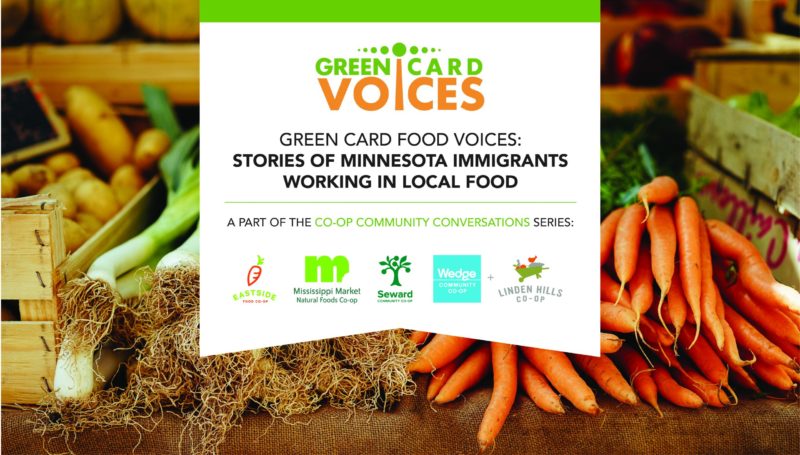The event series “Co-op Conversations: Exploring the intersection of racial, social, and food justice” is a community engagement and class series collaboratively presented by Eastside Food Co-op, Mississippi Market Food Co-op, Seward Community Co-op, The Wedge, and Linden Hills Co-op as a way to examine and connect our cooperative values with social justice movements. We are honored to be joined by community leaders, artists, chefs, and activists in discussing how we can integrate our values as part of a broader cooperative movement working for justice.
Co-op Conversations: Exploring the intersection of racial, social, and food justice
Asian American and Pacific Islander Heritage Month Class Series

This class series highlighted the food, traditions, and cultures of the Twin Cities’ Asian American and Pacific Islander community. Instructors generously shared their expertise on the traditions and history of ingredients and recipes from the AAPI community in Minnesota and beyond. You can watch these classes via the links below.
Black History Month Class Series
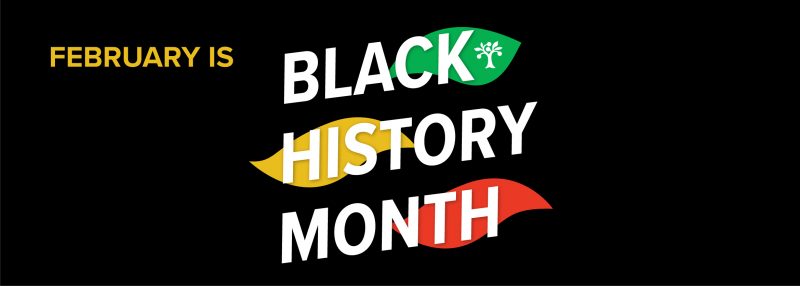
We celebrate Black History Month with Addie from Seward Co-op as she shared Sunday dinner recipes. View her classes below!
Indigenous Foods Class Series

We were honored to partner with the Indigenous Food Network and local members of Indigenous-led organizations Dream of Wild Health, Division of Indian Work, Gatherings Café, and American Indian Family Center as they shared their knowledge through a series of cooking and lecture workshops.
We learned how to make delicious meals, drinks, medicines, and desserts as instructors shared their expertise on sourcing, sustainability, and environmental impacts on local and native-grown foods.
Jim Crow of the North
For the first in our Community Conversations series, we looked at the history of housing inequities in the Twin Cities through the documentary film “Jim Crow Of The North”. The virtual panel discussion featured the film’s producer, Dan Bergin, on how the film delves into the complex history of racial covenants in the Twin Cities and systematic racism that has lasting repercussions on housing inequities today.
We were also joined by Rebecca Walker from Mapping Prejudice, a group dedicated to seeking to expose structural racism through the unearthing thousands of racial covenants that reserved land for the exclusive use of white people.
Food justice activist Miah Ulysse connected these structural barriers to food and land access, and what we as cooperators can do to take action on these ongoing inequities.
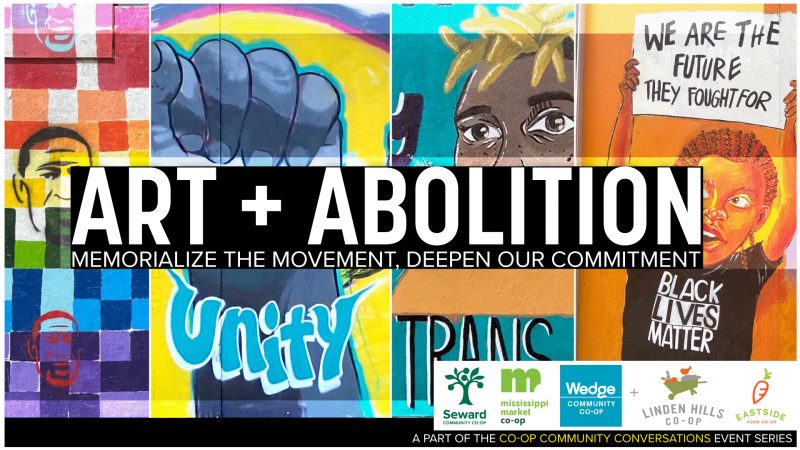
Art + Abolition: Memorialize the Movement, Deepen Our Commitment
On Thursday, June 24, community members gathered at our Franklin and Friendship stores for Art + Abolition; an art-centered event of connection, reflection, and a renewed commitment to social and racial justice. We were joined by Memorialize the Movement, in ceremony to take down and receive the remaining boards of protest art that were installed on our buildings in June of 2020. The muralists discussed the significance of their work as they navigate using creativity as a means towards racial justice, and our community gathered to create their own art while enjoying music from local DJs.
Green Card Food Voices
For our third event of the Co-op Community Conversations series, we partnered with Green Card Voices, a local non-profit organization that uplifts the stories of immigrants living in the Twin Cities and around the U.S. We heard the stories of three local immigrants who own local food businesses in the Twin Cities: Naima Dhore of Naima’s Farm and Somali American Farmers Association, Ruhel Islam of Gandhi Mahal and Curry in a Hurry, and Belén Rodriguez of Quebracho Empanadas. They joined us for a virtual panel discussion about the immigrant experience in our community, owning a food business, and weathering the pandemic and civil unrest of 2020.
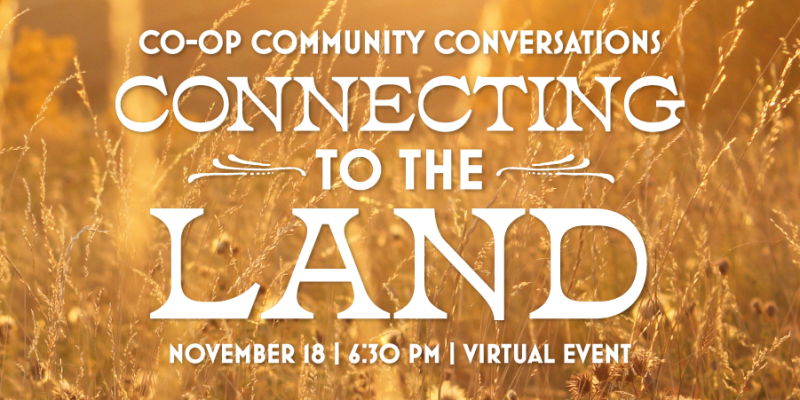
Connecting to the Land
Native American community leaders Hope Flanagan, Neely Snyder, and Vanessa Casillas joined us for a conversation about the interconnected relationships between land, water, and food systems in Minnesota. We discussed the impact of environmental health on Indigenous foods and what we can do to support food access in Native communities.
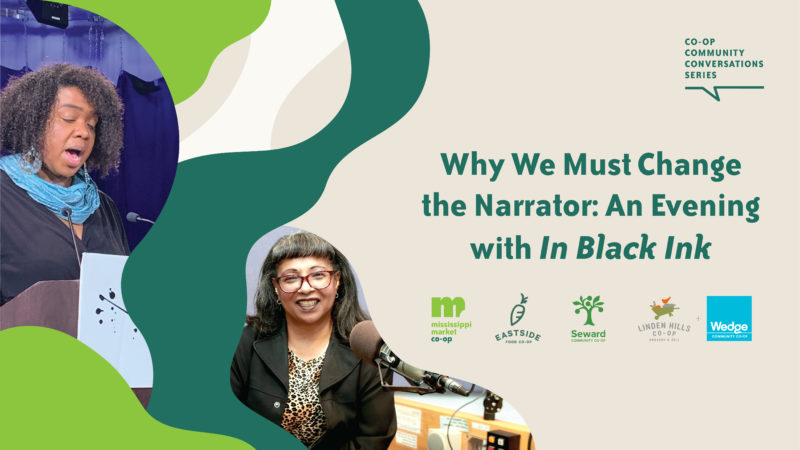 We Must Change The Narrative: An Evening with In Black Ink
We Must Change The Narrative: An Evening with In Black Ink
Mississippi Market and other Twin Cities food co-ops recently hosted a panel discussion to celebrate Juneteenth with local nonprofit In Black Ink, whose mission is to “create spaces where the stories and voices of people from African heritage are celebrated, documented and archived.”
